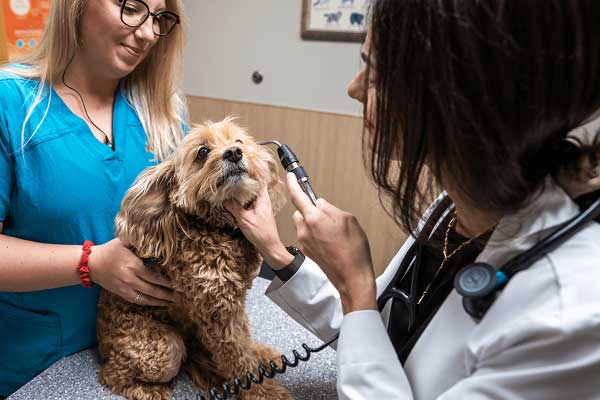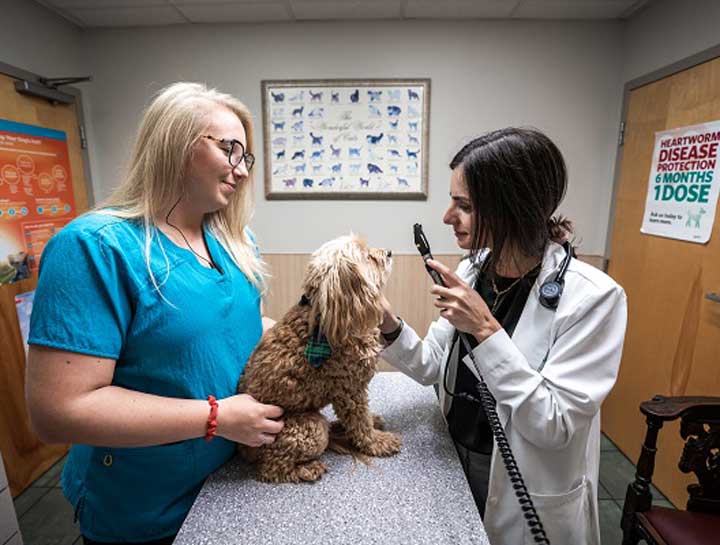Dog Wellness Care
What should I expect for my dog's wellness exam?
Like humans, it's important that canine pets also receive their regular health and wellness exams. By doing so, pet parents can receive a diagnosis for any underlying problems, as well as prevent any future health scares. Puppies are recommended to have monthly exams, while adult dogs are recommended an exam every six months. By working with the expert veterinary staff for dog exams, pet parents can expect:
- Devotion to your pet, as if he or she was part of our own family
- Routine questions about your dog’s diet, appetite, exercise, behavior, medical records and any concerns you may have
- Observations to identify any changes in alertness, liveliness, gait, stance, symmetry, weight, size, and growth pattern in your dog
- A thorough physical examination of your dog to check for abnormalities in skin, coat, eyes, ears, nose, mouth, teeth, heart, lungs, lymph nodes, legs and abdomen
- Recommendations for vaccinations, parasite control, additional testing, and treatment of any conditions we find

- The frequency of wellness exams depends on your dog’s age, breed, daily routine, and medical history.
- Regular exams help establish: first, a normal baseline for comparison; and second, a means to identify abnormalities based on comparison to earlier exams.
- Health risks and lifestyles change over time.
- It is not lawful, ethical, or in the best interests of pets for veterinarians to prescribe medications for animals that are not actively under their care.
- Just as the prevention of disease is the foundation of good medicine, a biannual exam is the foundation of good prevention.
Skipping a six-month exam for dogs is the human equivalent of missing over three to seven years of health exams! Since one human year is equivalent to seven dog years (on average), our pets could suffer ill health for a greater percentage of their lives if issues are not detected and treated early.
Benjamin Franklin said, “An ounce of prevention is worth a pound of cure.” Dog Dentistry at Northeast Animal Hospital can help prevent many health issues and much pain from ever occurring by maintaining the dental health of your beloved dog.

